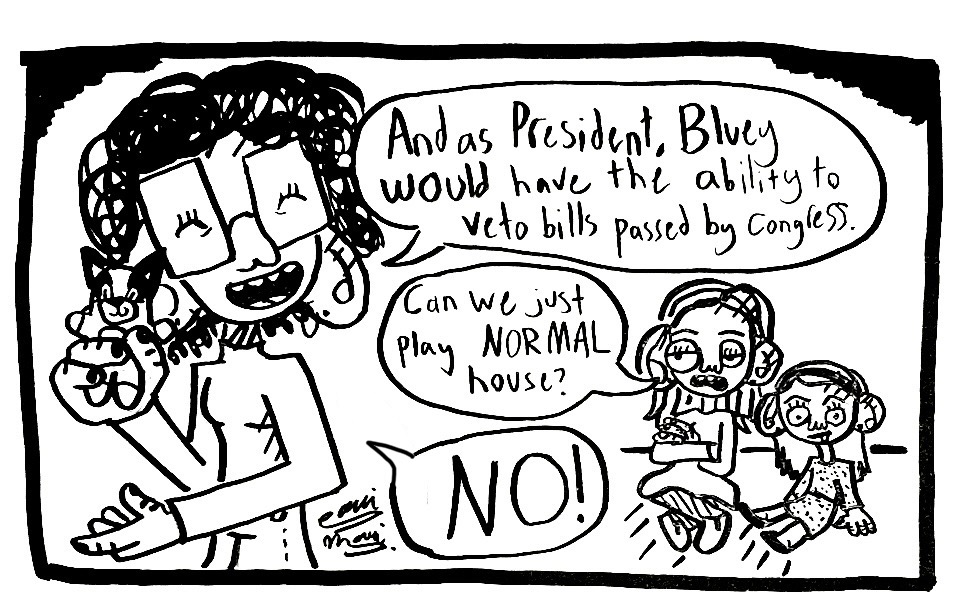We may talk about being one of the most politically active campuses in the country, but most students have little to no actual experience with the local D.C. government. Students on campus might know President Donald Trump’s latest tweet, but they know little about the new initiatives that D.C. Mayor Muriel Bowser is proposing. Many students at GW – including me – have had internships outside Foggy Bottom, so while we do physically leave the immediate area, we usually fail to engage with the local government of the city we live in.
But that tide can turn if students follow the example set by two current students. Junior Michael Christian Woods is running for D.C. mayor this year, while sophomore James Harnett is running uncontested for a spot in the local neighborhood commission. These students are using their experiences to improve the local community and make a tangible impact. Woods said his campaign would focus on the lack of access to healthy food in parts of the city, the housing crisis and homelessness. Meanwhile, Harnett wants to focus on creating another H Street crosswalk and developing a better channel of communication between students and the Foggy Bottom and West End Advisory Neighborhood Commission.
When I read about these two students, I felt proud. They are doing what many of us have failed to do – getting directly involved by running for positions that could allow them to effect tangible changes in the D.C. community. Even if they don’t get elected, they are still putting their ideas out there, and the candidate that does win could still adopt their policies. Students should learn from these two and follow their lead by becoming more engaged in local D.C. politics, by running for positions or just attending neighborhood commission meetings, to make a difference on a local level.
It’s easy to get lost in the national focus of politics that most schools seem to have. Many D.C. interns think that the only government that matters is the federal one. But a lot of major changes that impact students have come from grassroots campaigns and through local governments. Students should realize this and try their best to get involved in the D.C. government to invoke actual change.
If you hear students say that they are “involved” in politics, that typically means having an unpaid internship on the Hill where they answer calls and fetch coffee. In general, these internships don’t even guarantee that students will get a job right out of school. These internships can be valuable and look impressive on your resume, but sadly, most of these internships don’t result in students having a direct impact on improving our community.
Students should see local politics as a way to get into the political stage, while making a difference. It might not be the Hill with a big politician, but it’s politics that matters.
And there are several ways to get involved if you aren’t ready to run for office just yet. Once a month, there are community meetings hosted by advisory neighborhood commissions that occur around the city and cover important topics – like street crime and drug consumption –facing D.C. Harnett is running for a position that alumna Eve Zhurbinskiy held for two years before resigning last month after graduating. I attended a couple of these meetings for a journalism class I took last semester and realized most people that attend these meetings are older citizens. This shows that a young perspective is missing, which is not ideal because students are impacted by the decisions made at these meetings.
Citizens at these meetings are able to express their opinions of what is occurring to the board members directly, and can even question the Metropolitan Police Department and representatives that work with Bowser. Debates that have been held in these sort of meetings include the GW Hospital helipad plan and an unlimited metro pass for students, which Zhurbinskiy advocated during her tenure. If students really want to get involved, then instead of only discussing issues around Foggy Bottom with their friends, they should discuss them with the board members who can actually make a difference. Students are more likely to have an impact speaking out at these meetings than they are trying to get their voice heard in a internship on the Hill.
Students should take advantage of living in D.C. not just to get insight of the federal government, but to get an inside look at the local government. Few other universities are in a large city that has a local government like GW does. If students are really as politically active as they say they are, then they should actively seek to get involved in local politics – where they can make a difference right now.
Laura Castro Lindarte, a senior double-majoring in journalism and political science, is a Hatchet columnist.
Want to respond to this piece? Submit a letter to the editor.


